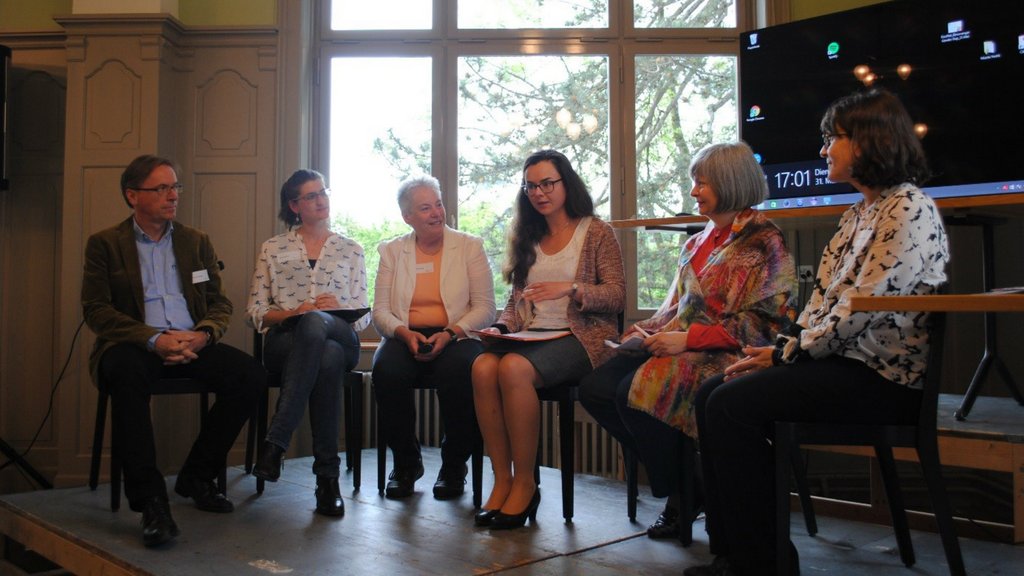Campus - 02.06.2016 - 00:00
Women in research: Using opportunities, overcoming obstacles
Women who want to carve out a career for themselves in academia are still facing an uphill task. Only 20 per cent of the professors at Swiss universities are women. Against this background docnet, the HSG’s network of doctoral students, invited representatives of the University and up-and-coming women academics to discuss the challenges, opportunities and strategies for women’s academic careers. An article by Dana Sindermann.

At assistant level, at least, 40 per cent are women. But the higher up the career ladder, the lower the percentage of women. According to the first panel, the main reason for this can be found in the patriarchically fashioned structures of academic life.
Patriarchal structures are reproduced
The women representatives of the University can discern strong male alliances and subtle power mechanisms at various levels – for instance when it comes to appointing a professor: "It depends extremely on the people who sit on the appointment committee," said Latin America Professor Yvette Sánchez. "And if no woman is on it, then it’ll also become much more difficult to have a woman appointed." It was important to raise people’s awareness of such structures, said Christa Binswanger, Permanent Lecturer in Gender and Diversity. And specifically, measures would have to be put into place until equal treatment of men and women candidates became a matter of course.
Conquering the "fear of quotas"
Margrith Bigler-Eggenberger, one of the first lecturers of the University of St.Gallen and Switzerland’s first woman to become a federal judge, argued the case for conquering the "fear of quotas". Other universities have already introduced them and, as Christa Binswanger reported, their experiences with them have been very positive. Another help could be the institution of an equality commission, which would champion equal rights and equal development opportunities for women and men. Such measures stirred up some controversy among the panel. Thus the newly appointed Professor of Political Science, Tina Freyburg, pointed out that quotas and promotional measures implied that “women have deficits which can be eliminated by means of special training”.
Exacerbated challenges: academic career and children
Another big issue – also in the second panel, which was made up of young women academics – was the compatibility between an academic career and children. Women try to coordinate family and career, whereas men assume a higher degree of responsibility in their jobs. This is also demonstrated by the publication rate. Among women, it drops after the birth of a child; among men, it rises. Here, an institutionalised "promotion of fathers" would be desirable, which would simultaneously also work as a promotion of women, for instance four weeks’ paternity leave.
Create networks!
At an individual level, the seasoned academics unanimously gave their young colleagures the following tip: "Create networks!" – networks in the academic community, but also networks among women. Also, female role models were helpful, as was copying a bit more courage and risk-taking from men. "And you mustn’t believe," said Tina Freyburg, "that you have to follow that course as lone warriors."
The author, Dana Sindermann, is a Research Assistant at the Institute for Business Ethics.
More articles from the same category
Discover our special topics











